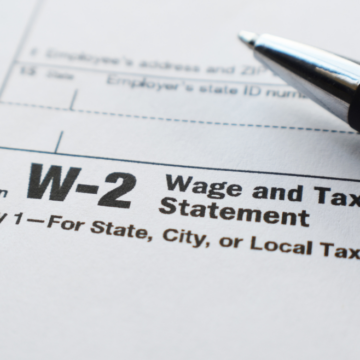Debt consolidation can simplify your life and make payments easier, but you need to choose the right approach for your situation.
Loans, nonprofit programs and balance transfers work differently for credit card, medical, student loan and personal loan debt – each with pros and cons.
GreenPath’s Debt Management ProgramDebt Management Program is an affordable way to consolidate debt without the common pitfalls.
Whether you’re dealing with high interest credit card bills, medical expenses, student loans or personal loan debt, consolidating can make it easier to keep track of your payments and save money. Consolidating is a way to simplify your finances and reduce the stress of managing multiple debts, but it pays (literally) to do your research on whether consolidation is right for youwhether consolidation is right for you.
Credit Card Debt Consolidation
Credit card debt is the most common type of debt consolidation. Many people struggle with high interest credit card balances especially when they have large balances month after month. Credit card interest rates can range from 15% to 25% or more so even if you’re making minimum payments, a big chunk of your payment is going towards interest…not the principal balance.
Review your credit reports when considering debt consolidation. Different credit scores can affect the terms offered by lenders and monitoring your credit reports for errors is important especially if you’re having debt issues.
Combining multiple credit card debts into one loan with a lower interest rate can simplify payments and save you money, but consolidating credit card debt can affect your credit scores. Lenders will pull your credit reports and scores during the approval process and a new loan can help or hurt your credit scores depending on your existing credit history and score. While seeking a debt consolidation option may lead to a temporary drop in score due to credit inquiries, responsible management of the resulting account can ultimately improve one’s credit score over time.
Consolidation Options for Credit Card Debt
There are several ways to consolidate debts, including balance transfer cards, personal loans, and home equity lines of credit.
- Balance transfer cards: These cards offer 0% APR for balance transfers for 12 to 18 months. By transferring your existing credit card balances to this card, you can save on interest during the promotional period. This can also be a way to consolidate multiple credit cards into one payment. But be aware: balance transfer fees are usually 3% to 5% of the transferred amount. And after the promotional period ends the interest rate jumps to a high rate, often 20% or higher, so you need to pay off the balance within the interest-free period.
- Personal loan: A personal loan can be used to pay off credit cards and consolidate multiple balances into one loan with a fixed interest rate. Personal loans have lower interest rates than credit cards, especially if you have good credit and they have a fixed repayment schedule which makes it easier to budget.
- Home Equity Line of Credit (HELOC): A HELOC allows homeowners to tap into their home equity as collateral to borrow funds. This can be a viable option for consolidating credit card debt, often at a lower interest rate than most credit cards. Alternatively, a home equity loan provides a lump sum with a fixed interest rate, making it a predictable and structured solution for debt consolidation. Both HELOCs and home equity loans are secured by your home, which typically results in lower interest rates. However, it’s essential to consider the risks—missed payments could lead to foreclosure, so these options should be approached with caution and a solid repayment plan.
Watch out for:
- New spending: Consolidation can give you immediate relief, but you need to avoid using your credit cards. If you continue to use your credit cards, you may be in a worse situation than before.
- Credit score impact: Debt consolidation can hurt your credit score initially due to a credit inquiry. Lenders use credit scores to decide whether to approve a debt consolidation loan and the terms attached. But if done responsibly it can lead to long term benefits such as improving your credit score by making on-time payments and reducing credit utilization.
- Fees and terms: When applying for balance transfer cards or personal loans make sure to read the fees and repayment terms. Some loans may have high fees or penalties, and balance transfer cards may have high fees that will eat up the savings you expect.
- Scams: Unfortunately, the rise of debt consolidation has also brought with it an increase in scams. Be cautious when dealing with companies that promise “debt relief” or “instant fix” for your financial problems. If a company asks for large upfront fees, makes unrealistic promises or pressures you to act fast these are red flags.
Medical Debt Consolidation
Medical debt can accumulate quickly, often due to unexpected emergencies or illnesses. A solid debt management strategy can help you navigate these challenges. Consolidating debt into a single payment can simplify your finances and potentially reduce your overall costs.
Can I Combine Medical and Credit Card Debt?
Yes, you can consolidate medical and credit card debt into one payment. A debt consolidation plan, like GreenPath’s Debt Management Program, can help simplify payments and may lower the interest on high-rate credit card balances.
Should I Pay Medical Bills with a Credit Card?
Using a credit card to pay medical bills is generally not recommended unless you have a clear plan to pay off the balance quickly. Here’s why:
- Medical bills usually don’t accrue interest immediately, while credit card interest adds up quickly.
- Converting manageable medical debt into high-interest credit card debt can worsen your financial situation.
Medical Bills and Credit Reports
Medical bills are still reported to credit bureaus, but consumer protections have improved:
- Debts under $500 are no longer reported to credit bureaus under the No Surprises Act.
- 12-month grace period: Medical debts won’t appear on your credit report for 12 months, giving you time to set up a payment plan with your provider or explore consolidation options.
Student Loan Consolidation
Student loan debt is one of the most significant financial challenges many people face, especially during the transition from school to work. Consolidating your loans can simplify payments and make managing your debt more manageable.
Federal student loan consolidation
Federal student loan consolidation combines multiple federal loans into a single Direct Consolidation Loan. Key benefits include:
- Simplified payments: Turn multiple loans into one payment.
- Preserved protections: Retain access to income-driven repayment plans and federal loan forgiveness programs.
- Interest rate calculation: The new loan’s rate is a weighted average of your existing rates, so consolidation won’t lower the overall interest rate.
Private Student Loan Refinancing
Private student loan refinancing involves taking out a new loan from a private lender to pay off existing loans. Benefits and considerations include:
- Lower interest rates: If you qualify, refinancing can reduce your interest rate and save you money over time.
- Loss of federal protections: Refinancing federal loans with a private lender means forfeiting benefits like income-driven repayment and forgiveness programs.
- Credit-based qualification: Your credit score and financial history determine eligibility and interest rates.
Impact on Credit Scores
Consolidating student loans can affect your credit score in several ways:
- Positive effects: On-time payments on a consolidated loan can boost your score.
- Simplified budgeting: Combining loans into one payment can help you stay organized and reduce missed payments.
- Potential risks: Missed payments or an increased debt load during the process can negatively impact your credit.
High-Interest Personal Loan Debt
Personal loans are used for big purchases or consolidating existing debt and can have high interest rates if you have imperfect credit. Consolidating high interest personal loans into one loan with a lower rate can save you money on interest payments and make payments easier to manage.
By combining multiple debts into a single loan with regular monthly payments, you can simplify your repayment process. By reducing the total interest paid you can make repayment more manageable and efficient. A home equity loan can also be considered for consolidating high-interest personal loans, offering potentially lower interest rates.
What to consider when consolidating high-interest personal loans:
- Eligibility: To get a lower interest rate you need good credit. Those with lower credit scores may have a harder time qualifying for lower rates but options are available through credit unions and online lenders. If your credit has improved since you took out the original loans consolidating could save you money.
- Fees and terms: Read the terms of the consolidation loan. Some lenders charge fees or have penalties for early payment.
- Loan type: You may also consider a Debt Management Program (DMP) to consolidate your loans without taking out a new loan. This can lower your interest rates and fees and keep your repayment terms more manageable.
Debt Consolidation Loan vs. Debt Management Program
Debt consolidation loans involve borrowing a new loan to pay off existing debts. They are a management strategy that combines multiple debts into a single loan with one monthly payment. Debt consolidation can hurt your credit score initially due to a credit inquiry; lenders use credit scores to qualify you for these loans and determine approval and interest rates. This can simplify your payments but often requires good credit to get a low interest rate. Consolidation loans can also have fees, and you may end up in the same situation if you’re not disciplined about managing your finances.
On the other hand, a Debt Management Program (DMP)Debt Management Program (DMP) is a service offered by nonprofit credit counseling agencies like GreenPath. A DMP consolidates payments into one and a certified counselor works directly with your creditors to lower interest rates and fees, often saving you money. DMPs are especially helpful for those who can’t qualify for loans and offer the benefit of having a professional on your side every step of the way.
You Might Also Be Interested In…
Debt Settlement vs Debt ManagementDebt Settlement vs Debt Management
GreenPath Financial Service
Free Debt Counseling
Take control of your finances, get tailored guidance and a hassle-free budgeting experience. GreenPath offers personalized advice on how to manage your money.










